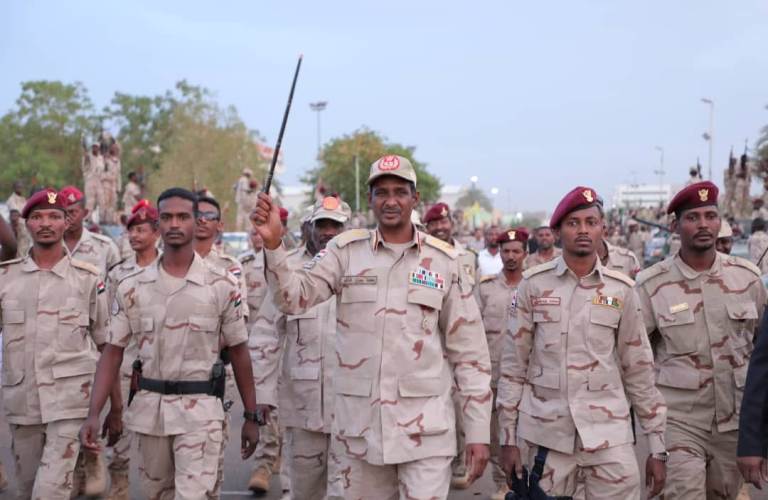U.S. considered sanctions on Sudan’s military before to put it on pause: report

July 26, 2019 (KHARTOUM) – The United States put aside plans to impose sanctions on the ruling Transitional Military Council in Sudan after fears that it would disturb the fragile ongoing discussions on power transfer to a civilian rule.
According to the Foreign Policy, the sanctions were debated during a series of meetings held in mid-June after a bloody raid on the main pro-democracy sit-in Khartoum that resulted in the killing of over a hundred protesters by the Rapid Support Forces (RSF) on 3 June.
“But those plans were tabled, according to officials familiar with internal deliberations, so as not to upset the fragile peace talks between civilian leaders and figures in Sudan’s Transitional Military Council (TMC),” said the magazine in an article published on Friday.
The article further said that Donald Booth, U.S. Special Envoy for Sudan was one of those who called to reconsider sanctions’ imposition and to stop the process for fear that they would derail the talks on power handover between the TMC and the opposition Forces for Freedom and Change (FFC).
On the other hand, the State Department spokesperson dismissed that Washington had mulled sanctions against the TMC and particularly, the RSF leader Mohamed Hamdan Daglo (Hemetti) who is also the deputy chairman of the ruling junta in Sudan.
Hemetti denied ordering the brutal attack on the protesters and insinuated that Islamists officers in the army who integrated the RSF were behind the raid.
Also, the TMC formed an investigation committee but its findings were not published as the junta recently agreed to form an independent body to probe the attack.
The Foreign Policy pointed out that lawmakers and activists called for sanctions imposition on the junta.
Joshua White, the director of policy and analysis at The Sentry, an investigative team of the advocacy group Enough Project said that sanctions combined with diplomacy “probably the best chance the Sudanese people have” to bring the military council to hand over power to civilians.
Also, Cameron Hudson, a former U.S. diplomat and National Security Council staffer who worked on Sudan issues called to show clear support for Sudanese opposition FFC during the ongoing negotiations with the military junta.
“The fact of the matter is, one side is a brutal military ruling junta that has shown every willingness to put down peaceful protests with force, and the other side is a democratic uprising of civilians who want freedom after 30 years of dictatorship,” he said, before to conclude “It feels like a no-brainer what side we should be on.”
Last May, the United States initiated a group of Sudan Friends that includes Egypt, Ethiopia, European Union, France, Germany, Norway, Qatar, Saudi Arabia, the United Arab Emirates, the United Kingdom, United Nations, and the United States, in addition to the International Monetary Fund and World Bank.
The international forum is aimed at supporting the democratic transition in Sudan and preventing a Libya-styled civil war. Also, they plan to provide financial support to the east African country.
(ST)
